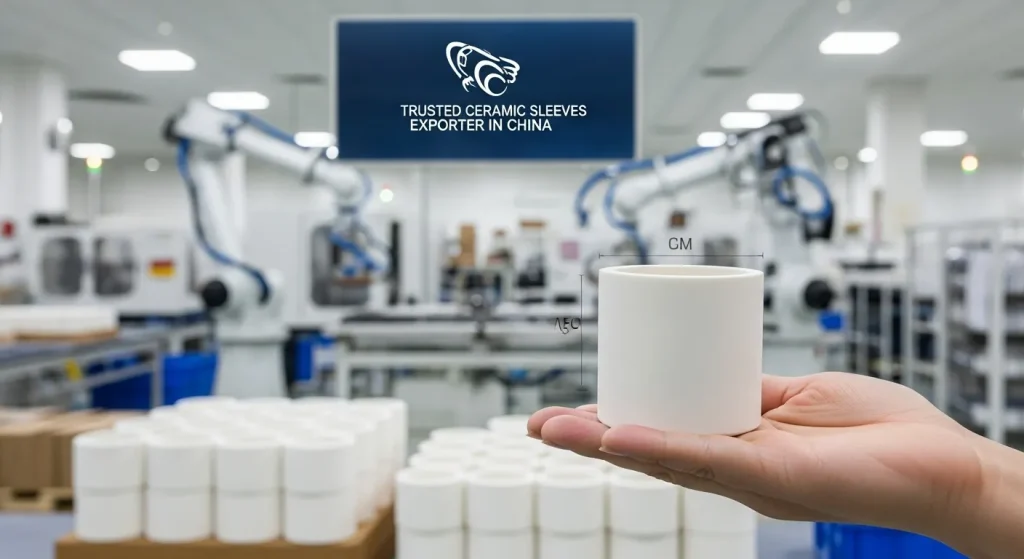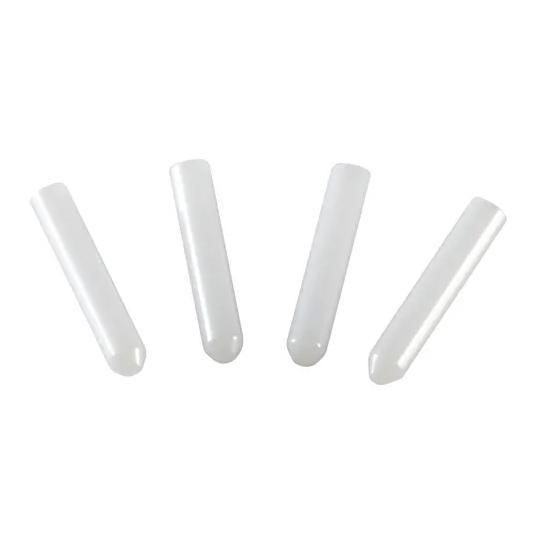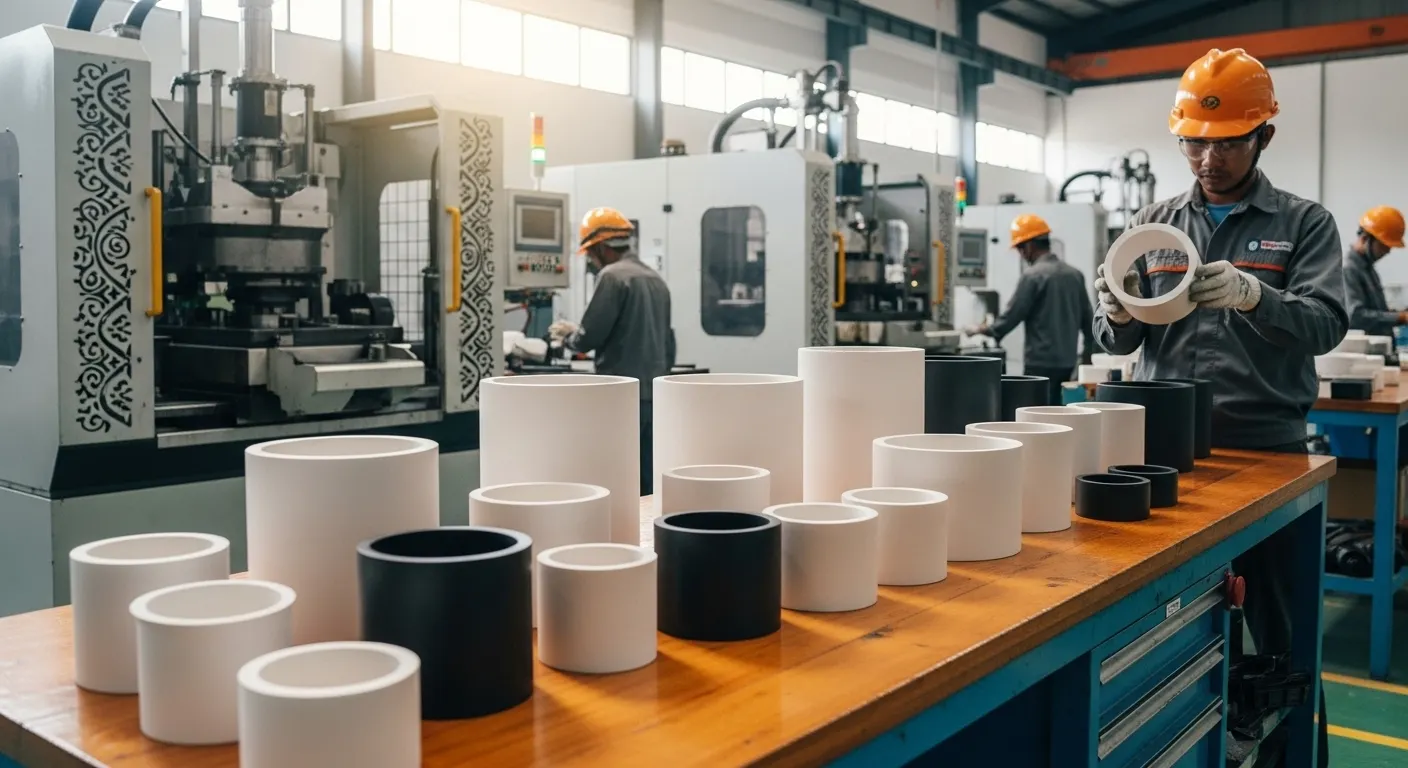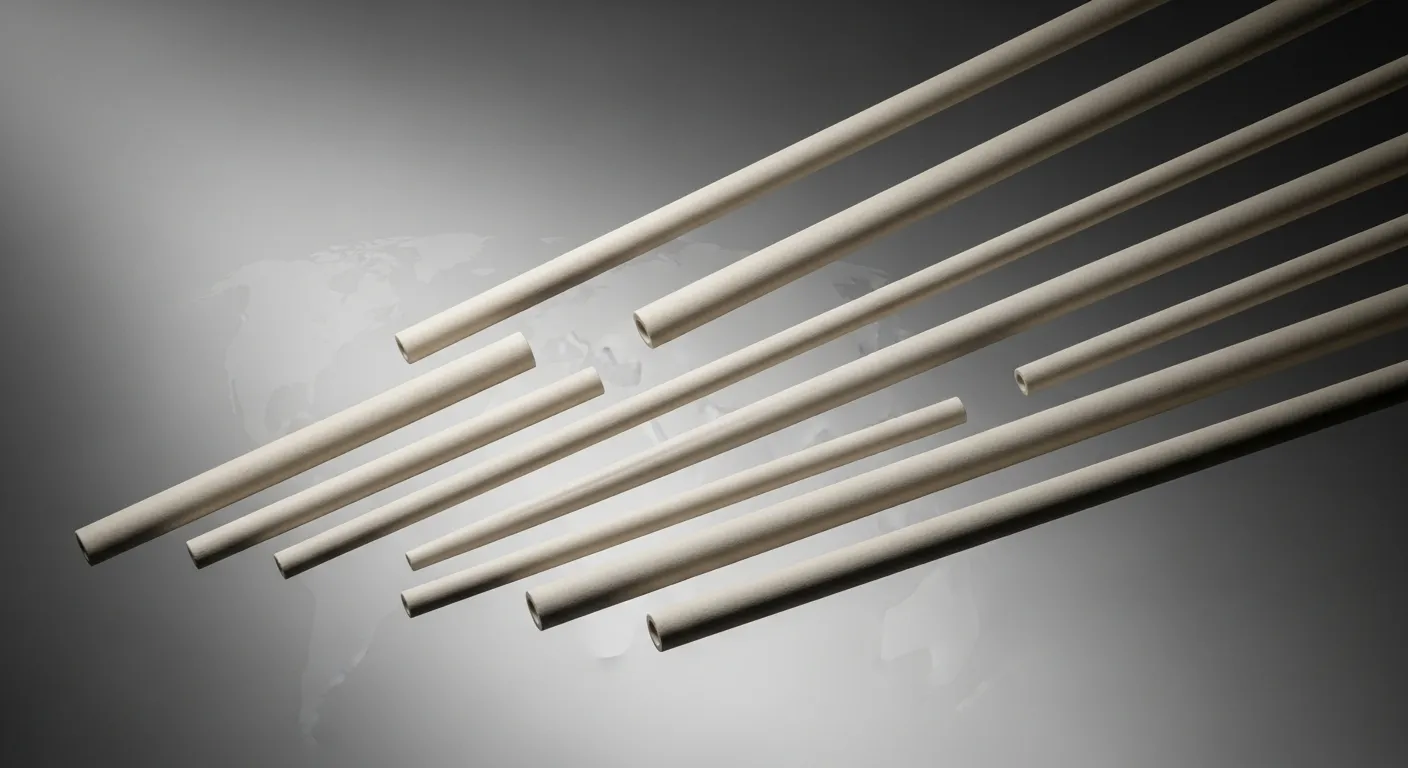Trusted Ceramic Sleeves Exporter in China
A trusted ceramic sleeves exporter in China is a vital link in the global telecommunications supply chain. These specialized exporters provide high-precision components. These parts are essential for fiber optic networks. The exporter's role is to bridge high-volume manufacturing with global demand. They ensure that every small component meets strict international quality standards. This is not just about shipping products. It involves managing quality, logistics, and technical communication.

The global demand for data requires reliable network infrastructure. Ceramic sleeves are a core part of this infrastructure. They align fibers for low-loss connections. A trusted exporter guarantees the performance of these critical parts. They build this trust through consistent quality, verified processes, and reliable delivery. Their expertise allows data centers and telecom companies to build and expand networks.
What Are Ceramic Sleeves?
Ceramic sleeves are small, cylindrical alignment components. They are also known as split sleeves or alignment sleeves. Their primary function is to align two fiber optic ferrules. A ferrule is the component that holds the end of an optical fiber. The sleeve is housed inside a fiber optic adapter. It provides the mechanism for a precise connection.
The Core Function: Precision Alignment
The main purpose of a ceramic sleeve is to ensure perfect alignment. The cores of single-mode optical fibers are tiny. They are often only 9 microns in diameter. Light must pass from one core to the other. Any misalignment causes the signal to weaken. This is called insertion loss. A high-quality ceramic sleeve holds the two ferrules in a perfect line. This minimizes insertion loss and ensures a strong signal.
Why Zirconia is the Industry Standard
These sleeves are made from a specific material: zirconia. Zirconia is an advanced technical ceramic. It is chosen over metal or plastic for several reasons.
- Extreme Hardness: Zirconia is harder than steel. It does not wear out after many connections.
- High Fracture Toughness: This is zirconia's key benefit. It can resist cracking, which is vital for split sleeves.
- Thermal Stability: The material does not expand or contract much with temperature. This keeps alignments stable in all environments.
- Chemical Inertness: Zirconia does not rust, corrode, or react with its surroundings.
Metal sleeves, like phosphor bronze, can wear down. This creates debris. Plastic sleeves lack precision and durability. Zirconia solves all these problems. It is the standard for high-performance connections.
Split Sleeves vs. Solid Sleeves
Ceramic sleeves are available in two main types: split and solid.
- Split Sleeves: These are the most common. They have a narrow slit cut down one side. This slit allows the sleeve to compress slightly. It gently but firmly grips the ferrule. This ensures a snug fit.
- Solid Sleeves: These are solid-bore tubes. They have no slit. They are used in applications requiring rigid alignment. This includes some transceivers and active devices.
A top exporter will offer both types. They can supply the correct part for any application.
The Role of a High-Volume Exporter
A ceramic sleeves exporter in China operates in a high-volume market. Their role is different from a small-batch distributor. They manage large-scale production and global logistics.
Managing Large-Scale Production
Exporters work directly with large manufacturing facilities. These facilities are built for mass production. They can produce millions of sleeves per month. The exporter's job is to manage this capacity. They coordinate production schedules. They ensure the factory is producing the right parts. This scale is a key advantage. It allows for cost-effective production.
Ensuring Quality Across Batches
The biggest challenge in high-volume production is consistency. A trusted exporter must guarantee that the millionth sleeve is identical to the first. This requires a strong quality management system. They cannot just ship boxes from the factory. They must be involved in the quality process. This includes batch testing and process audits.
Global Logistics and Export Compliance
An exporter handles all aspects of international shipping. This includes:
- Secure Packaging: Sleeves are small, precise parts. They must be packaged to prevent damage.
- Customs Documentation: The exporter prepares all necessary paperwork. This ensures the shipment clears customs.
- Freight Management: They work with shipping companies. They find the best routes and rates.
A trusted exporter makes this process smooth. The buyer receives their parts on time, with no surprises.
The Manufacturing Process in Detail
Understanding the manufacturing process is key. It shows why precision and quality are so important. A good exporter is transparent about this process.
Step 1: Raw Material Formulation
The process begins with ultra-pure powder. This is Yttria-Stabilized Zirconia (Y-TZP). Yttria is added to the zirconia. This stabilizes the ceramic's crystal structure. It gives the material its high fracture toughness. This powder is mixed with an organic binder. The binder helps the powder hold its shape during molding. The quality of this initial mix is critical.
Step 2: Precision Injection Molding
The powder-binder mixture is heated. It becomes a thick paste. This paste is injected under high pressure into a steel mold. The mold is a precise negative of the sleeve. This creates the "green part." The green part is fragile. It is also slightly larger than the final sleeve. This is to account for shrinkage.
Step 3: Thermal Processing (Debinding and Sintering)
The green parts go into a furnace. This stage has two parts.
- Debinding: The part is heated slowly. The organic binder is burned away. This must be done carefully to prevent cracks.
- Sintering: The temperature is raised much higher. This is often above 1,400°C. The zirconia particles fuse together. The part shrinks and becomes extremely dense and hard.
Step 4: Precision Finishing (Grinding and Lapping)
After sintering, the sleeve is hard. But its dimensions are not yet perfect. It must be finished.
- Outer Diameter (OD) Grinding: The sleeve is ground using diamond wheels. This achieves the exact outer diameter.
- Inner Diameter (ID) Lapping: This is the most critical step. A fine diamond slurry is used to polish the inner hole. This creates a smooth surface and a precise inner diameter.
Step 5: Slitting and Chamfering
If it is a split sleeve, it goes to a cutting station. A thin diamond saw cuts the narrow slit. The ends of the sleeve are also chamfered. This is a small, angled cut. It helps guide the ferrule into the sleeve. It prevents chipping.
Quality Control: The Foundation of Trust
A ceramic sleeves exporter in China becomes "trusted" through quality control. This is a non-negotiable part of the business. Buyers depend on the exporter to be their "eyes" at the factory.
ISO 9001: The Global Standard
The most important certification is ISO 9001. This is an international standard for a Quality Management System (QMS). It proves the exporter and their manufacturer have documented processes. It shows they are committed to:
- Consistent processes.
- Continuous improvement.
- Customer satisfaction.
- Traceability of parts.
Buyers should always look for an ISO 9001-certified exporter.
Metrology: The Science of Measurement
An exporter must use advanced metrology tools. They cannot just trust the factory. They must verify.
- Inner Diameter (ID): This is the most important measurement. It is checked with air gauges. These tools measure airflow to determine the ID with sub-micron accuracy.
- Outer Diameter (OD) and Length: These are checked with laser micrometers. Non-contact video systems are also used.
- Concentricity: This measures how centered the ID is relative to the OD. Poor concentricity causes misalignment.
100% Inspection vs. Batch Sampling
Some applications are so critical they require 100% inspection. Every single sleeve is checked. For high-volume standard parts, AQL (Acceptable Quality Limit) sampling is used. A trusted exporter is clear about their inspection methods. They can provide the level of inspection the customer needs.
Documentation and Traceability
Trust is built with paper. A good exporter provides full documentation.
- Certificate of Conformity (CoC): This document states that the parts meet all specifications.
- Material Datasheet: This proves the material is Y-TZP zirconia.
- Inspection Reports: These show the actual measurements for the batch.
This paperwork provides traceability. If there is a problem, the part can be traced back to its production batch.
Working with a ceramic sleeves exporter in China offers access to scale. It also requires managing a global supply chain. A good exporter makes this easy.
Communication is Key
A trusted exporter has a professional, English-speaking support team. They can answer technical questions. They provide clear updates on orders. This communication is essential. It prevents misunderstandings. It builds a strong working relationship. Buyers in other regions, such as those sourcing ceramic sleeves USA, value this clarity.
Lead Times and Logistics
The exporter must provide realistic lead times. They manage the time for production and shipping. They work to keep this time as short as possible. We also manage the logistics. This means choosing the right shipping method. It can be air freight for fast delivery. It can be sea freight for large, non-urgent orders.
Secure Packaging
This is a final, vital step. The exporter ensures the sleeves are packaged correctly. They are often sealed in anti-static bags. They are placed in custom trays. The outer box is strong. This protects the precision parts during their long journey.
Specialized Ceramic Components
A full-service exporter often handles more than just standard sleeves. They can be a source for other related components.
Custom Manufacturing
Many projects require non-standard parts. A trusted exporter has relationships with factories. They can manage the production of custom-engineered solutions. This includes sleeves with unique lengths, diameters, or materials. The exporter's engineers work with the customer's engineers. They turn a drawing into a real product.
Standard Connector Types
The exporter will stock a huge range of standard parts. This includes sleeves for all common connectors. An LC type ceramic sleeve distributor role is common. They supply the small 1.25 mm sleeves for data centers. They also supply 2.5 mm sleeves for SC, ST, and FC connectors.
Distinguishing from Other Ceramic Products
It is important to understand what these sleeves are not.
- They are not ceramic tube sleeves Indonesia. Those are often larger tubes for industrial use.
- They are not ceramic fiber sleeves Japan. Fiber sleeves are made of woven fibers. They are used for high-temperature insulation.
- This is a key distinction. Alignment sleeves are hard, dense, structural parts. Fiber components, like ceramic fiber components Indonesia, are for thermal management.
A good exporter understands these differences. They supply the correct precision alignment component. A good ceramic sleeves guide can explain this.
How to Evaluate a Ceramic Sleeves Exporter
When choosing a ceramic sleeves exporter in China, buyers should do their homework. A few key questions can reveal the exporter's quality.
Ask About Quality Control
- "Are you ISO 9001 certified? Can I see your certificate?"
- "What is your inspection process for ID? Do you use air gauges?"
- "Do you perform 100% inspection or AQL sampling?"
- "Can you provide a CoC and material datasheet with every shipment?"
The answers to these questions are very telling. A trusted exporter will have clear, confident answers.
Ask About Technical Capability
- "Can your team review my technical drawing?"
- "Do you have an engineer I can speak with?"
- "What are your capabilities for custom parts?"
This helps determine if they are just a reseller or a true technical partner.
Red Flags to Avoid
Be cautious of any exporter who:
- Offers a price that is much lower than all others. This often means they use cheaper materials (like alumina) or skip inspection.
- Cannot provide an ISO 9001 certificate.
- Is vague about their quality control methods.
- Is slow or difficult to communicate with.
Conclusion: A Partner for Global Connectivity
A trusted ceramic sleeves exporter in China is more than a vendor. They are a partner in building the world's communication networks. They leverage massive manufacturing scale. We control it with rigorous, documented quality processes. They build trust not just with low prices, but with consistency.
This trust is earned on every shipment. It is earned with every part that meets sub-micron specifications. It is earned with every on-time delivery. For companies building data centers or rolling out 5G, finding such an exporter is essential. It is the key to a reliable, high-performance, and cost-effective supply chain.
In This Article
- 1 What Are Ceramic Sleeves?
- 2 The Role of a High-Volume Exporter
- 3 The Manufacturing Process in Detail
- 4 Quality Control: The Foundation of Trust
- 5 Navigating the Global Supply Chain
- 6 Specialized Ceramic Components
- 7 How to Evaluate a Ceramic Sleeves Exporter
- 8 Conclusion: A Partner for Global Connectivity
 English
English 中文
中文





